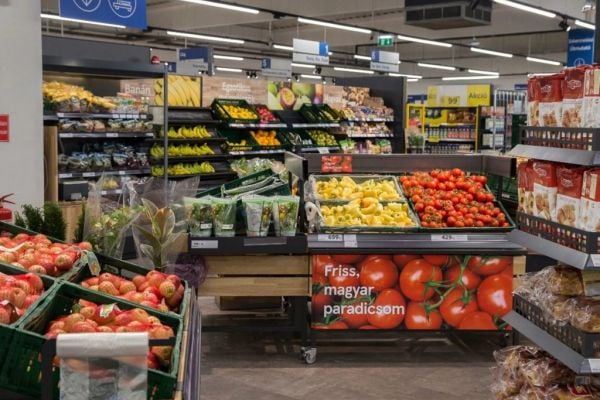Hungary's calendar-adjusted retail sales dropped by 3.9% in December after an annual 0.6% rise in November, as food sales plunged and an end to a government-imposed fuel price cap prompted Hungarians to buy less car fuel.
The data is yet another strong sign that Central Europe's economies slowed sharply in late 2022 as inflation sapped purchasing power despite a robust rise in wages, which failed to keep pace with accelerating price growth.
Data last week showed that the Czech economy contracted further in the fourth quarter, pushing the country into a technical recession for the first time since 2020.
Polish industrial output softened in December and retail sales hardly grew.
Food Sales Decline
Monday's data showed that Hungarian food sales dropped by 8.3% year-on-year in December, while non-food sales were down by 0.4%. Fuel sales were only 1.3% higher, after the government abolished a car fuels price cap in early December. The price cap had been in place for households since late 2021.
"Due to the end to the fuels price cap in early December, the volume increase at filling stations plunged," the statistics office said. In November fuel sales jumped by over 27% in annual terms, and this slowed sharply in December.
A key question for the region's central bank policy makers now is to what extent domestic demand will be hit in 2023 with inflation still running high. The region's central banks have opted to pause sharp rate-hiking cycles launched in 2021, fearful of depressing GDP further.
Wage Growth
In Hungary, where inflation was running above 24% in December, private sector wage growth accelerated to 18.7% year-on-year in November. The government had agreed with employers on a 16% rise in the minimum wage for 2023, which influences wage decisions as the year starts.
"The decline in real incomes, rising corporate costs, delayed public investment and the stricter interest rate environment all have a restraining impact on domestic demand," the Hungarian central bank said after its latest monthly rate meeting in January.
News by Reuters, edited by by ESM – your source for the latest retail news. Click subscribe to sign up to ESM: European Supermarket Magazine.














